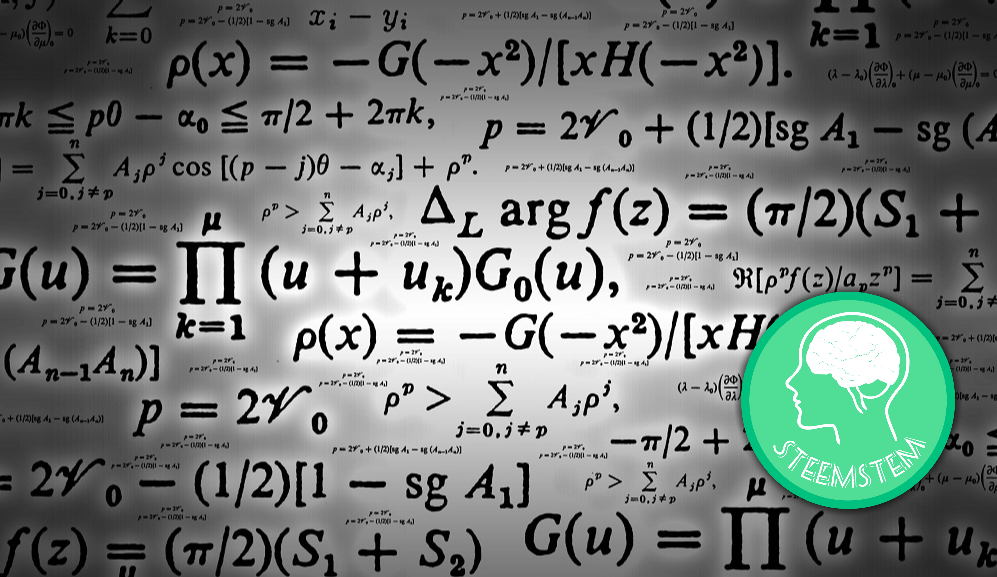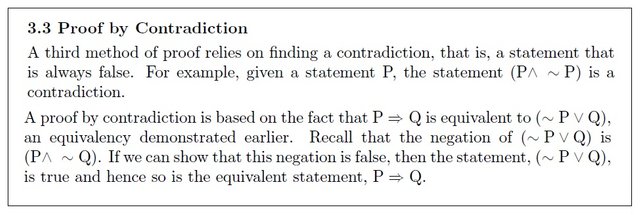Why Is Math So Hard To Learn?
I'm sure you heard the phrase: "I hate math". It's ironic because math is such a fundamental field of study that helps shape the world we know today. Math is practically everywhere; architecture, applications in science, technology, etc. It's a field of study that is hated by many but utilized by all and it appears that plenty of individuals seem to forget how important this subject matter is.
So, why is it so hard to learn? Well consider that it may not be hard for you to learn but many students find math subjects difficult to understand. It's ironic because math is extremely logical and fundamental. It's one of the most concrete fields of study (take no offense my science people, you're concrete too).

Allow me to emphasize; in other subjects, especially in art related courses things can be defined as true or false depending on personal assumptions. In math, things are true or false by definition or law, unless there is an exception. In math we also have axioms which are assumed to be true; think of these axioms as statements that are "a given". A recognizable mathematical axiom would be something as simple as: a = a, where 'a' represents a real number. Obviously, a number will equal itself such as 1 = 1 because 1 does not equal 2; these fundamental statements are defined as axioms. These definite true / false values are what allows automation and mathematics to coincide. Since functions can be defined as true or false with 100% certainty, we are able to automate plenty of mathematical processes; perhaps, more recognizably: arithmetic operations.
Mathematics tries it's best to prevent any logical contradictions. In fact; a very popular proofing method used in Discrete Mathematics by Computer Scientist is proof by contradiction. This method is used to prove that a claim is false by trying to prove if the inverse relationship is true. If you cannot prove that the inverse relationship is true; most likely you ran into a logical contradiction, which means by proof of contraction since the inverse relationship cannot be proven true the claim must be false. The reason why this works is because in any claim the inverse relationship or opposite statement must hold true to form a balanced relationship. Here's a formal definition of what I said below:

So far it may seem that I have only provided evidence on why math shouldn't be hard to learn. I haven't directly answered the question: "Why is math so hard to learn?". Considering the evidence, we know that math is logical, fundamental, and everything is defined as true or false by law, yet many students still have trouble understanding math. A big part of that is due to how society operates and how many individual’s functions in their day-to-day lives. I cannot personally speak for other countries but here in the United States, math is not expressed enough in our everyday interactions.
Rather than understanding how something works we seem to only care about if it works. There is little to no critical thinking applied because all the critical thinking is already done for us. Math involves a great heap of analytical thinking and because the majority students lack in analytical skills they struggle heavily in math. Students want to believe their correct, and in other disciplines that can get away with that but in most STEM fields that will not work. A definition cannot be contradicted because you don't "like it". Scientists, Engineers and Mathematicians cannot assume on "what you meant" rather they can only know "what you said".
.jpg)
If society involved individuals to apply more critical thinking and placed a higher emphasis on STEM disciplines I can guarantee that STEM fields wouldn't be difficult for many. On the contrary I could assume that the inverse fields; fine arts would probably be more difficult! Many individuals find fine arts to be more interesting, and I do not oppose opinions but a big part of that is due to the implementation of fine arts within society. Fine arts have been integrated into society and is a big part of our everyday lives.
I do not reject the importance of fine arts, as I think it is a great relaxing field of study but more emphasis on math and science would surely see an increase in STEM related test scores. Because the emphasis on math and science is kept to a minimum, individuals who lack exposure are easily intimidated by the “complexity” behind math. The subject looks alien-like to them because they do not expose themselves to it in their everyday lives. I could almost bet that if math was commonly used in our everyday societal interactions, math wouldn’t be so hard to learn. Just like learning a new language the best way to kick start your skill in math is by consistently practicing and increasing exposure.
TL;DR: Math shouldn’t be hard to learn but it is actually one of the most difficult subjects for undergraduate students. Keep in mind it may not be hard for you (the reader) to understand but this could be due to your increased exposure within the field of study. Math being challenging is ironic considering that math is pure logic; things are defined as true or false by definition, not speculation. In art related courses objects can be defined as true or false by personal bias. In theory this should make art more complex and abstract, making it more difficult to understand art axioms but this is unfortunately not the case.
Unlike fine arts, exposure to math (or any STEM subjects) is kept to a minimum within everyday societal interactions. Notably, within the United States math isn’t viewed as an “interesting” topic therefore standard conversations usually do not involve math. Unless you’re studying or working in a STEM related field, no one is usually talking about algorithms, or complex functions for fun. This lack of exposure makes math intimidating for many individuals and develops a false stereotype that “math is hard”. Rather it is just a lack of experience within the subject which, consequently math hard to learn.
REFERENCES:
- http://zimmer.csufresno.edu/~larryc/proofs/proofs.contradict.html
- http://mathworld.wolfram.com/Axiom.html
- https://www.thoughtco.com/why-math-seems-more-difficult-for-some-students-1857216
- http://www.mathnasium.com/mathhard/
Note: A big thanks to @steemstem for providing fun and educational content relating to Science, Technology, Engineering and Math!

Nice topic. It's true though. I used to be quite good at math and algebra. Now that I don't use it in daily life, I notice it takes me time to solve quite simple math problems. It's not that I'm not capable, more that I'm not practiced. And once you're out of practice, you also don't enjoy doing as much anymore. So yes would be nice to find ways to incorporate math into daily life more :)
@amritadeva Thanks! Regarding your statement; absolutely. Finding a way to integrate mathematics into our everyday interactions may sound a little cheesy but it would be very positive. I mean, I doubt you'd go up to your friends and tell them "guys find the derivative of this function please" out of the blue lol.
But just like a foreign language, lack of practice and exposure really sets a toll on your ability to apply math. When I was growing up, my grade schools didn't put enough emphasis on math, and science. Now as a engineering student it really posed as a challenge for me during my freshman and sophomore years.
This is true for many scientific domains as well. In my opinion, the problems with the teaching of math lies in the way this is presented. As you said, just emphasizing the logics behind and showing how important it is for everything in everyday life may soften the opinion of many kids.
@lemouth I completely agree. Growing up, I've always found learning science and math to be a chore. Ironically I decided to go into engineering which relied heavily on mathematics and scientific fundamentals; quite honestly I wasn't too sure on what I was expecting! However, once my exposure to STEM fields increased I started developing a deep sense of respect for the disciplines.
It was that respect / appreciation that motivated me to want to learn more about math and science. No matter the subject matter; if there is no interest or appreciation for it, it will always be "hard" to learn. This even applies to something as simple as basket weaving (which I absolutely know nothing about). In this case, as we discussed many students lack that trait for math / science. Consequently this makes it more difficult for them to understand.
I 100% agree. Motivation has to be there in the first place, as both of us say it.
Many people I know are actually like you. They didn't like much science/math to start with but for some reasons, they move on with scientific studies and get a different approach, which brings them closer to a topic that they master and have fun with today :)
@lemouth
I do agree with this. I have heard cases (small anecdotal sample size) where students claim that they have a hard time following the math class because the teacher "sucks" or "can't teach". It is not easy to get excited about a class where the presented material is not organized, clear or even correct.
Good teachers are indeed rare. For many reasons, people are not very attracted by the job, and only the most motivated ones go through. We have not enough of them :(
Math's difficulties comes in stages in my opinion:
xNot many people are math majors and out of those not many pursue the research side within mathematics.
As a student I find that practicing a lot we can solve the problems easily but this is only for marks if we try to understand the reality of a equation then it helps a lot...
Thanks for your post, I appreciate your research on this topic.
@shuvomallick Thank you for your feedback! Continue to practice, and more importantly try to have fun with it because exploring education is fun! It's an opportunity that many individuals do not have, and for some of those who do have it, they seem to take it for granted. :)
Congratulations @mindhacks! You have completed some achievement on Steemit and have been rewarded with new badge(s) :
Click on any badge to view your own Board of Honor on SteemitBoard.
For more information about SteemitBoard, click here
If you no longer want to receive notifications, reply to this comment with the word
STOP